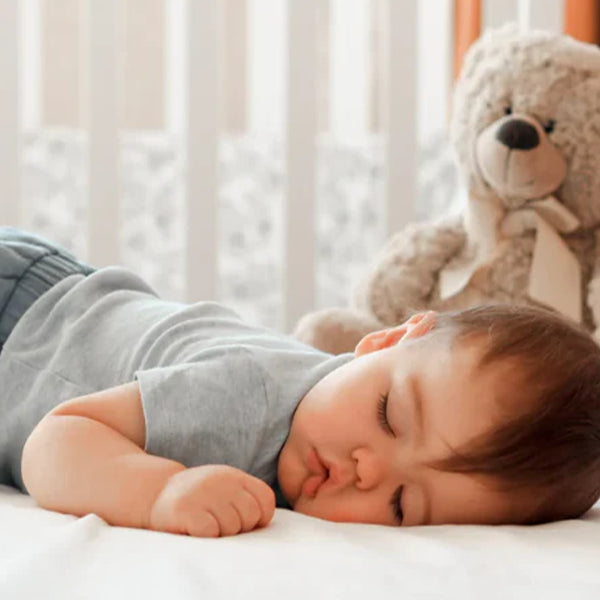Organic, natural, and transparent care
All our products are made in France or Europe with natural ingredients
More than 199,999 families trust us ❤️
Language: US
Products
Content
0 results
Organic, natural, and transparent care
All our products are made in France or Europe with natural ingredients
More than 199,999 families trust us ❤️
Language: US
Products
Content
0 results

Since the 1990s, official medical recommendations have advised parents to place babies on their backs to sleep. This is due to Sudden Infant Death Syndrome (SIDS), which is believed to be more common in babies who sleep on their stomachs. Given these recommendations, many parents find themselves puzzled when they notice their baby rolling over onto their stomach during sleep. So, what should you do?
First and foremost, it's essential to reiterate the official recommendations: a baby should be laid down on their back to sleep, at least until they reach one year of age, to reduce the risk of sudden infant death syndrome. Since the back sleeping practice was introduced, cases of SIDS have been reduced by more than 50%. This is because when babies sleep on their back, their nose and mouth are well clear, unlike when they sleep on their stomach.
Around four months old, babies begin to roll over on their own from their stomach to their back and vice versa. This is an important milestone in their psychomotor development, and it's crucial not to interfere with this learning process. To encourage this, specialists recommend practicing free movement, which allows babies to explore and move freely without restriction.
As Sonia Krief reminded us during the JOONE Instagram live in April, if your baby rolls onto their stomach while sleeping, rest assured: they will be able to roll back onto their back as soon as they feel the need! So, no need to hover by their crib all night long trust your baby!
Some parents might be tempted to use a baby wedge to prevent their child from rolling over onto their stomach while sleeping. Beyond the principles of free movement, medical recommendations must also be considered. A baby should be laid on a firm mattress in a bed free of plush toys, bumper pads, excessive soft items, pillows to prevent flat head syndrome, and most importantly, no pets! The reason is simple: these objects could obstruct their breathing and increase the risk of SIDS.
Once again, the key is to trust your baby! Let them sleep peacefully like an angel, and enjoy this quiet time just for you!